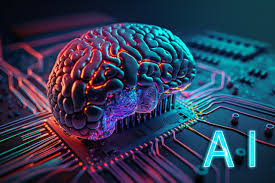Artificial Intelligence (AI) has become one of the most transformative technologies of the 21st century, revolutionizing industries and changing the way humans live and work. From simple voice assistants to advanced self-learning systems, AI exists in different forms, each serving unique purposes. To understand its impact, it’s important to explore the five main types of AI and the benefits they bring to society and businesses.
1. Reactive Machines
Reactive machines are the most basic type of AI. They operate solely on present data, without storing past experiences or learning from them. A famous example is IBM’s Deep Blue, the chess-playing computer that defeated Garry Kasparov.
Benefits:
- High efficiency for specific, rule-based tasks.
- Reliable in decision-making without human bias.
- Ideal for applications such as automated manufacturing or real-time game simulations.
2. Limited Memory AI
Limited memory AI can learn from historical data and past experiences to improve future outcomes. This type of AI is widely used in self-driving cars, where past information about road conditions and patterns is applied to make real-time decisions.
Benefits:
- Improves accuracy through data analysis.
- Supports predictive technologies in healthcare, finance, and logistics.
- Enhances safety in autonomous systems like driverless vehicles.
3. Theory of Mind AI
This advanced type of AI is still in the research stage. Theory of Mind AI aims to understand human emotions, intentions, and thought processes. If achieved, it could enable machines to interact with humans in a more natural and empathetic way.
Benefits:
- Improves human-computer interaction.
- Supports personalized customer service and healthcare.
- Opens the door to more collaborative robots in workplaces.
4. Self-Aware AI
Self-aware AI represents the most advanced form of artificial intelligence, where machines develop consciousness and self-awareness. While still theoretical, self-aware AI would allow systems to think independently, understand their existence, and make autonomous decisions.
Benefits:
- Could solve complex global challenges beyond human capability.
- Potential to create highly adaptive problem-solving systems.
- Drives innovation in areas such as space exploration and medical research.
5. Artificial General Intelligence (AGI)
AGI refers to machines that can perform any intellectual task that humans can do. Unlike narrow AI systems designed for specific tasks, AGI would possess reasoning, problem-solving, and decision-making skills across multiple fields.
Benefits:
- Versatile and capable of multi-tasking across industries.
- Can revolutionize education, healthcare, and business productivity.
- Bridges the gap between human intelligence and machine capability.
Artificial Intelligence is not a one-size-fits-all technology. From simple reactive machines to the futuristic vision of self-aware AI, each type offers unique benefits that can enhance productivity, improve decision-making, and reshape entire industries. While some forms remain theoretical, ongoing research and innovation suggest that AI will continue to evolve, bringing even greater opportunities and challenges for humanity.
The key lies in harnessing AI responsibly, ensuring that as technology grows smarter, it remains aligned with human values and collective progress.

